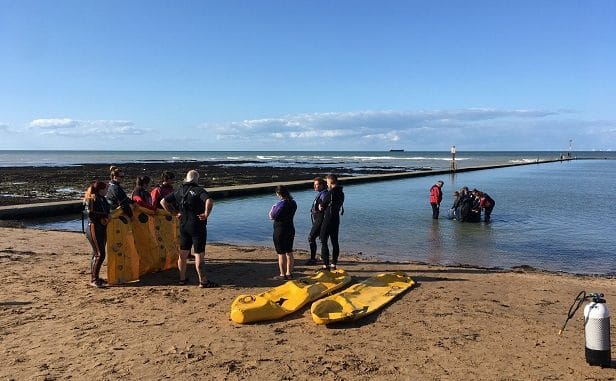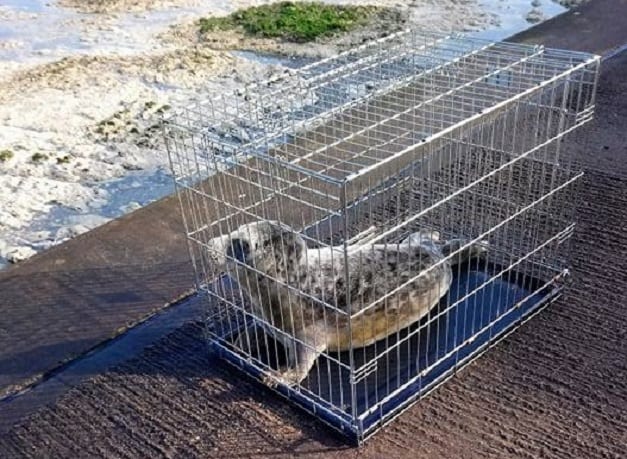
By Jodie Nesling
Whether it’s freezing snow, driving rain or fierce winds a group of dedicated volunteers are always at the ready to attend sick or injured sea mammals along the Thanet coastline.
And most recently members of the British Divers Marine Life Rescue (BDMR) have been training new recruits at the Walpole Bay tidal pool.
Charity boss and newly qualified marine medic Helen Pitman says the training was an amazing experience. “We’re so lucky to live in a place that has such a diversity of wildlife. Sea mammals are an important part of a healthy marine ecosystem and being able to help get them back to where they belong is a great skill to have learned and a way to help keep our local seal populations thriving.”
She added: “It was an amazing day, full of practical information that means when there is a seal in need of help I have the knowledge and skills to help them.”
The course taught the volunteers to identify the two species of seal found off the east Kent coast (grey and common), and to assess the situation.

Signs to look for to determine if the seal is in trouble and needs help are breathing rates, demeanour, injuries and body condition.
If there is a serious issue such as a young pup underweight and abandoned by the mother on the beach they learned to capture the seal and secure it in a cage for transportation to a rehabilitation centre – usually the RSPCA in Mallydams Wood.
Jeremy Stone who delivers the training for the BDMLR said it’s important that members of the public not to disturb a stricken mammal and to call for help.
He said: “If they are on the shore it is for a reason and nobody should try and get the animal back into the sea. Underweight pups will suffer in cold water and will need to be taken for rehabilitation to gain blubber.”

He added: “Seals can be aggressive and have a serious bite so learning to handle them with care is vital.”
The training also saw Helen and other local trainees learn how to assess larger sea mammals such as whales and dolphins. Specialist techniques refloating heavier animals are required with tarp used to roll dolphins and specialist pontoons for pilot whales.
Keeping them moist and calm is essential and team work is key to any successful rescue.
Helen said “Of course we all hope that there won’t be any animals in need but thanks to the BDMLR course there is now a network of Marine Mammal Medics across Thanet ready to help with any rescues.”
Seal Facts

Grey seals are the rarest of seal species and the UK has 38% of the global population. Thanet has a small population that lives off the coast and during the breeding season (Sept- Jan)
pups (born with a white coat) can sometimes be seen on beaches.
Common seals are smaller than the greys and the UK is home to 5% of the global population but is 50% of the European population.
They breed between June and August.

